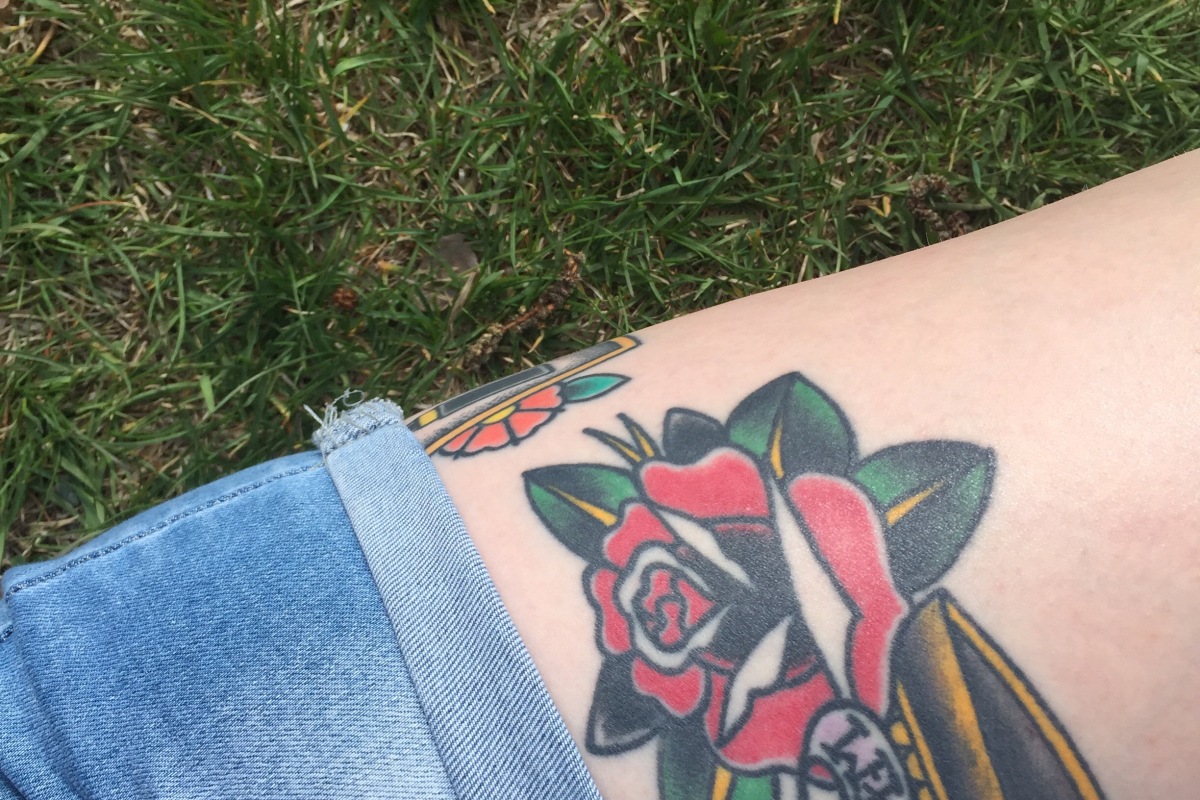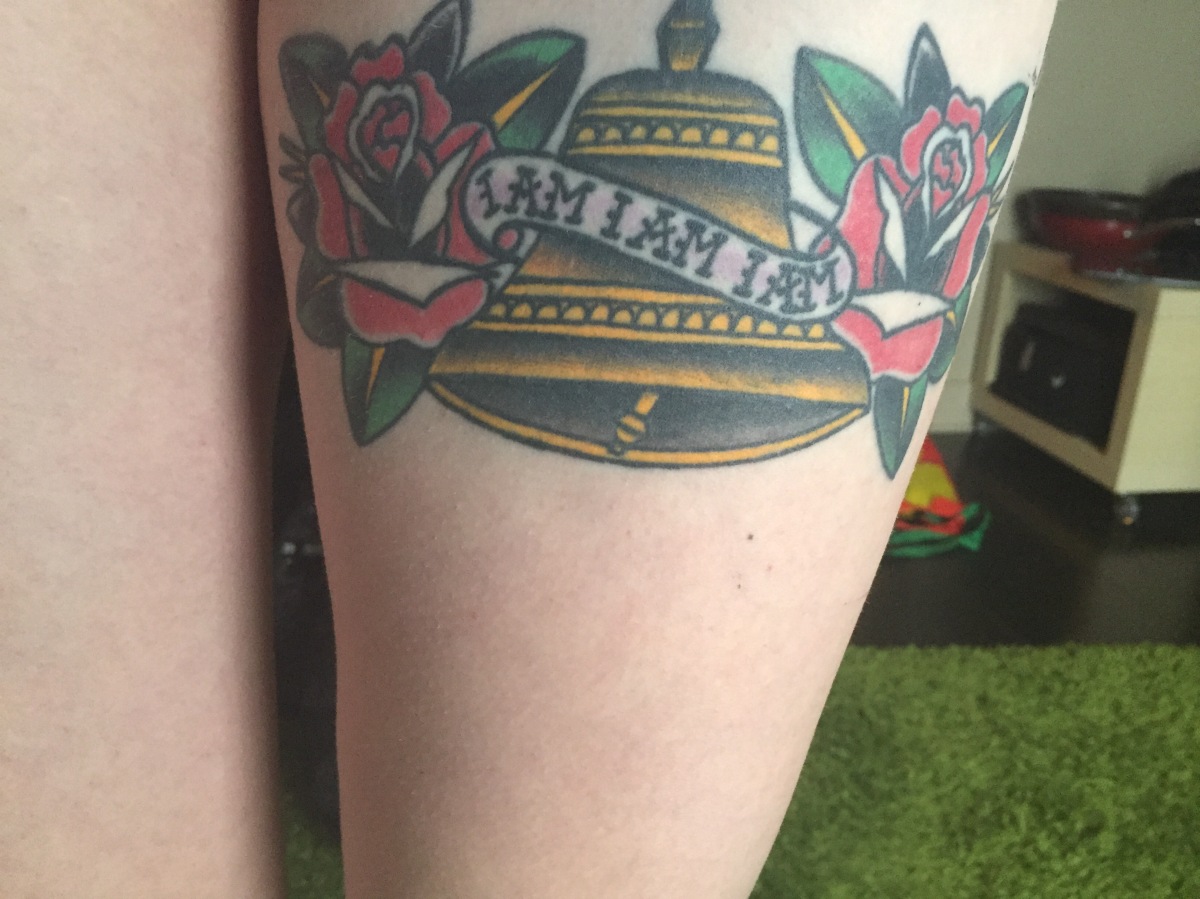Ok, so I have to confess something.
I read this book almost 3 years ago, and loved it so much it was the subject of my very first tattoo (picture at the bottom of the page). So clearly, I’m dedicated to loving this book till the end of time.
However, I reread it recently to see whether or not it held up to all the hype I had built in my head. I was inspired to do so by Ariel Bissett, a lovely Canadian booktuber, who for the New Year reread an old favorite and discovered that (gasp) she had only liked the novel contextually, not for its intransic merit. Here’s the link to that video:) https://youtu.be/5xzADPOenF0
I got nervous when I saw that, not gonna lie, because I got my favorite book tattooed right dab on my thigh, so if it turned out that this novel was ghastly, I’d have to amputate myself.
So here we go. What did I think about this novel 3 years later?
When I first read it I had been recently released from a psychiatric stay, one of the many in my teen years, and I felt lost. I wanted to recover, do better, feel better, but I didn’t know how. Besides, no one around me understood what I was going through, so I felt perpetually alone in my recovery.
I was recommend the novel by famous confessional poet Sylvia Plath on goodreads, and gave it a whirl. It is basically the story of a young girl, on summer vacation from college who goes to New York for a writing internship, and returns home to find herself majorly depressed, so much so that she has to be hospitalized. Set in the 1960s and semi autobiographical, The Bell Jar explores mental illness, coming of age and finding ones self in an intensely personal way, and quite revolutionarily for the time it was published.
I was struck by how deeply she understood the pain of major depression. The hilarity, the irrationality, the weird ticks, the bad doctors, the many treatments, the weird hospital cohabitants, the concerned mothers, etc. I strongly identified with her academic intelligence but decapitating emotional intelligence, and her views on men and the pressure to be in a relationship with a good one, respectable by society’s standard.
She felt trapped, and I felt it with her.
What struck me the most is that, knowing Plath’s tragic end, I assumed Esther, the protagonist, to end her life in suicide. I followed the plot with the notion, the thought, the almost knowledge that she would collapse. I had felt her pain, her feeling of impossible recovery and her removal from society. I thought, knowing that, she won’t make it through.
Spoiler alert. She does.
And here’s the thing. Her recovery is not heroic, perfect, and linear. Let’s face it, no ones is.
She slowly gets better, gets back up on shaky legs and takes her first steps. We don’t know if and when she will be able to say she is cured, but it doesn’t matter. If you can survive a time where you feel there is no future, you can survive anything.
3 years ago, it deeply moved me. I felt understood.
Today, I am a different person. I have recovered from self harm for quite some time, I am well medicated, and I live with my lovely boyfriend in a lovely apartment and love my lovely school.
But still, I understood Plath, but today for different reasons.
The prose, first of all, was inpecabble. The writing cannot be overlooked. You cannot help but feel everything she writes in a most personal but also artistic sense. She captures the precocious nature of your early 20s with apt that is to me unprecedented.
I also understood her indecisiveness in a different way. At the time I didn’t know where to go in life in regards to my actual sanity, and I now question my career path.
Her Branch tree simile is worth the entrance price for the entire book. It puts into words what so many young people feel with their whole lives ahead of them. If I don’t decide now or soon, I will do nothing of those things.
Sylvia Plath stands up to the test of time, the test of both the sane and the not so sane, and the test of a young girl quickly growing, but forever understanding Plath as the writer for will always, at some point in my life, write for me.
Rating; 5/5


I love this book sooo much!!!
LikeLike
🙌🏻🙌🏻👍🏻👍🏻😘
LikeLike
Great review and great tattoo! Have you read her short stories collection Johnny Panic and the Bible of Dreams? Bronte
LikeLike
I haven’t I’d love to though! Are they good?
LikeLiked by 1 person
Yes they are great! Plus some of her children’s books (eg The It Doesn’t Matter Suit) are lovely
LikeLike